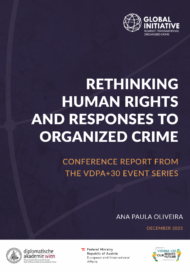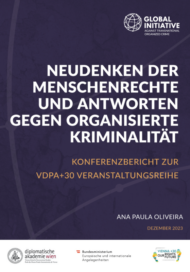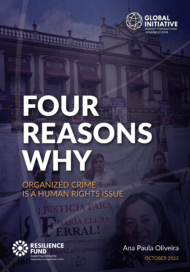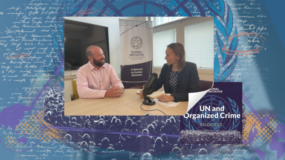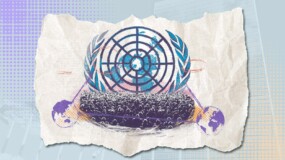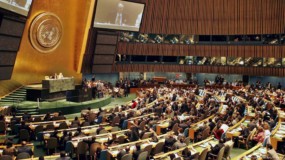Posted on 27 Dec 2023
The year 2023 was a landmark in terms of assessing new challenges to the universalization of human rights. The anniversaries of three key instruments provided an opportunity to reflect on the human rights landscape and how the human rights framework is being operationalized.
10 December 2023 marked 75 years since states came together to adopt the Universal Declaration of Human Rights (UDHR). This instrument is a milestone in human rights and inspired numerous human rights treaties and constitutions around the world. Almost 35 years after the adoption of the UDHR, the international community came together to discuss how to operationalize the Declaration and review the human rights machinery. The outcome of this conference was the Vienna Declaration and Programme of Action (VDPA), which in 2023 celebrated 30 years since it was adopted. In 2023, the world also remembered the 25th anniversary of the declaration on human rights defenders adopted by consensus by the UN General Assembly in 1998. But the world is not the same as it was 75 years ago. Global issues such as digitization, climate change and conflict pose multiple challenges to human rights. Organized crime cuts across many of these challenges. In this context of reflection on the effectiveness of the human rights framework, the Global Initiative Against Transnational Organized Crime (GI-TOC) has worked to raise awareness of the convergences between organized crime and human rights agendas, as well as communities’ responses to mitigate the negative impact of organized crime on human rights over the past year. In 2023, the topic was selected for the GI-TOC’s Resilience Fund Fellowship. In this context, the Fund organized its first in-person Fellowship meeting with a group of grantees and Fellows to discuss pressing human rights implications of organized crime. The meeting provided a platform for the Fellows to share experiences and current challenges related to the human rights impact of organized crime in their communities.
Building on this work, the GI-TOC, with the support of the Sector Programme on Human Rights of the Deutsche Gesellschaft für Internationale Zusammenarbeit (GIZ) on behalf of the Bundesministerium für wirtschaftliche Zusammenarbeit und Entwicklung (BMZ) and the government of Norway, launched the first institutional report on the issue, ‘Four reasons why organized crime is a human rights issue’ during the 24-hour Organized Crime Conference (OC24). This report draws attention to four areas where synergies in human rights and anti-crime regimes should be enhanced, so that safeguards for human rights are woven into states’ policy responses to transnational organized crime.
As a final 2023 activity and part of the series of follow up events to the celebrate the 30th anniversary of the VDPA (VDPA+30) and the 75th anniversary of the UDHR, the GI-TOC organized a series of events to raise awareness of the intersection between organized crime and human rights in Vienna with the support of the Government of Austria. The programme comprised a two-day expert group meeting held from 29 November to 30 November in Vienna and a public event. The expert group meeting (EGM) brought together experts based in Vienna and selected global experts (comprising academia, non-governmental organizations, and representatives from international and grassroots organizations) from both the human rights and crime prevention fields to discuss the multifaceted interactions between organized crime and human rights. It was designed to spark discussion on organized crime as a global challenge that keeps human rights from being fulfilled, based on our research and evidence on the issues.
During this series of discussions, the GI-TOC also hosted a public panel at the Vienna Diplomatic Academy. This was followed by a reception where participants could engage more informally. This event reflected on high-level principles, community experiences and responses, as well as the dissemination of community tools to respond to organized crime violence through a human rights lens.
This report summarizes the key points discussed in this series of events and proposes a way forward for those who want to pursue further work on the issue.
